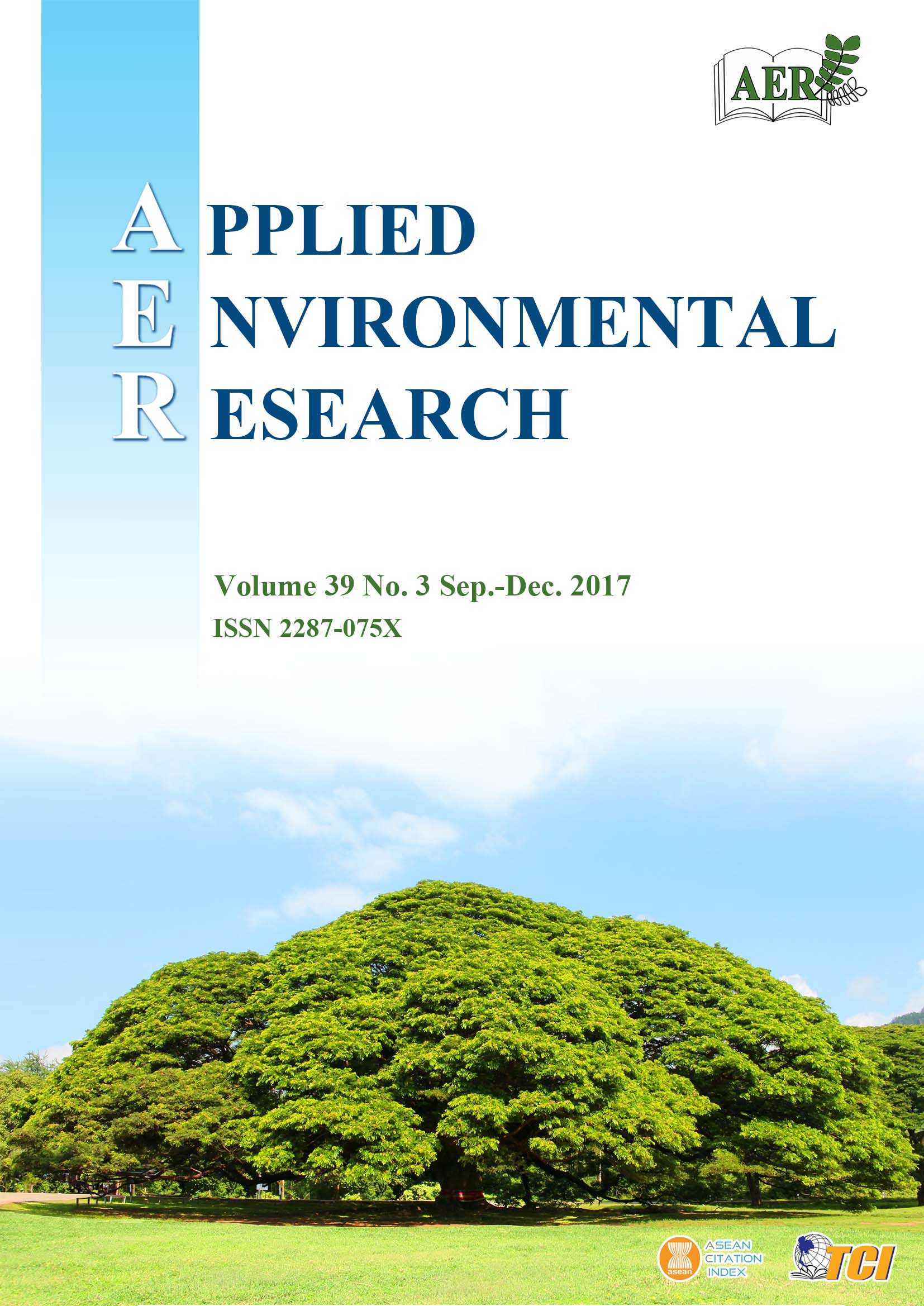Assessing the Sustainability Level of Municipal Solid Waste Management in Bangkok, Thailand by Wasteaware Benchmarking Indicators
Main Article Content
Abstract
The rapid increase in waste volume leads to numerous and widespread impacts on sustainable development including social, economic and environmental dimensions. This study applied Wasteaware benchmarking, which is a set of international indicators, to evaluate the effectiveness and sustainability of municipal solid waste management in Bangkok. The indicators allow identification of strengths and weaknesses of the urban waste management system, providing evidence-based guidance for further improvement. Structured questionnaires were developed based on the indicators and its manual for in-depth interviews with key stakeholders from Bangkok Metropolitan Administration (BMA). The data were analyzed using wasteaware datasheet under Microsoft Excel with score coding, generating a clear and detailed overview of the performance of Bangkok’s municipal solid waste management system (MSW). The overall assessment demonstrated that all waste collected is disposed through official treatment facilities. However, the system’s effectiveness is constrained by ineffective enforcement of relevant regulations. Moreover, waste collection services were found to be not fully efficient. In terms of financing sustainability, improvements are needed to reduce disposal costs. Even if BMA prioritizes waste collection and disposal, it is equally important to promote the 3Rs and fully implement source separation to reduce waste volumes at source. In this regard BMA’s efforts to waste volume reduction targets have met with limited success, and the volume of waste generated in Bangkok continues to rise each year. To enhance the sustainability of MSW management, the outcome of this study could be used to support decision-making and further development, as well as provide inputs for future research.
Article Details

This work is licensed under a Creative Commons Attribution-NonCommercial 4.0 International License.
Published articles are under the copyright of the Applied Environmental Research effective when the article is accepted for publication thus granting Applied Environmental Research all rights for the work so that both parties may be protected from the consequences of unauthorized use. Partially or totally publication of an article elsewhere is possible only after the consent from the editors.

